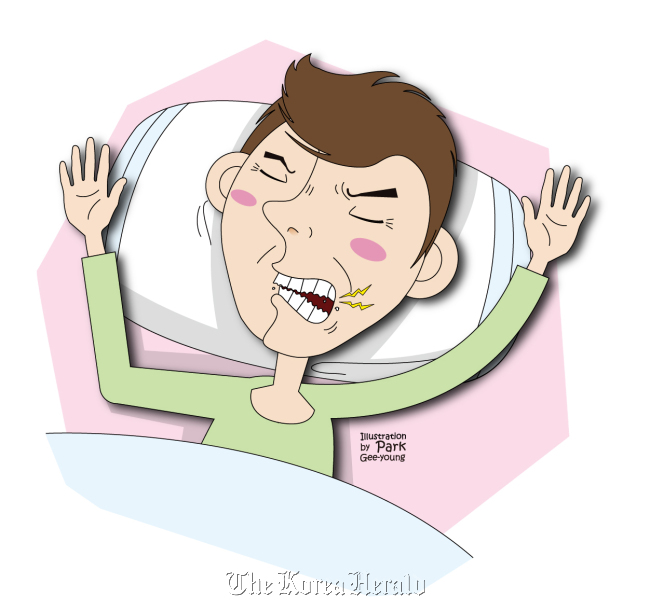If you’ve ever got so madly enraged you clenched your jaw and teeth in your angry reaction, then you definitely know a thing or two about Sleep Bruxism. With regards to the sleep disorder, Sleep Bruxism entails behavioural manifestation of the sleeper who will grind their teeth and clench their jaw in their subconscious state of sleep. You’re more likely to clench your teeth while awake rather than grind them and are more likely to grind your teeth while asleep given that a whopping 80% of people who grind their teeth actually do so in their sleep as is seen in cases of Bruxism. In some extreme instances, teeth may have to be replaced due to how much they are ground down, this may mean that dental implants clearwater services or services in other locations are needed to keep teeth aligned and looking better.
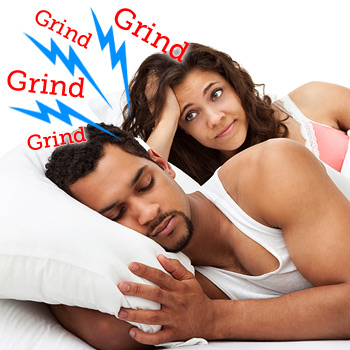
( Bruxism – Image Courtesy of www.bellingham-dentist.com )
Which factors contribute to Sleep Bruxism?
Just like in waking life, high levels of tension, stress and anxiety are key culprits that lead to Bruxism during the sleep phase. About 70% of Bruxism cases in sleep are attributed to the 3 culprits.
Other common causes of Sleep Bruxism include: ill health, dehydration and lack of enough body water, poor and wrong diet, normal sleep phase problems, teething in infants, poor alignment of the teeth and bad dental formula alignment. The latter may be dealt with by having an Invisalign Orthodontic Treatment to help recitify the alignment so that it can reduce the issue, however, this will need to be talked over with by an orthodontist.
Do note that as already established, Bruxism is not a reserve of the sleep cycle given that about 20% of the remaining cases manifest in the wake cycle.
The common ground for both the sleep and wake cycle Bruxism manifestations is that it typically occurs subconsciously. The majority of the Bruxism cases (about 80%) occur during one’s sleep in their subconscious state. While awake, you’re more likely to present Bruxism when deeply concentrating such as while studying or when highly focused on something you’re working on, in addition to highly stressful situations, and during great tension and anxiety.
Other common causes of Sleep Bruxism include: ill health, dehydration and lack of enough body water, poor and wrong diet, normal sleep phase problems, teething in infants, poor alignment of the teeth and bad dental formula alignment.
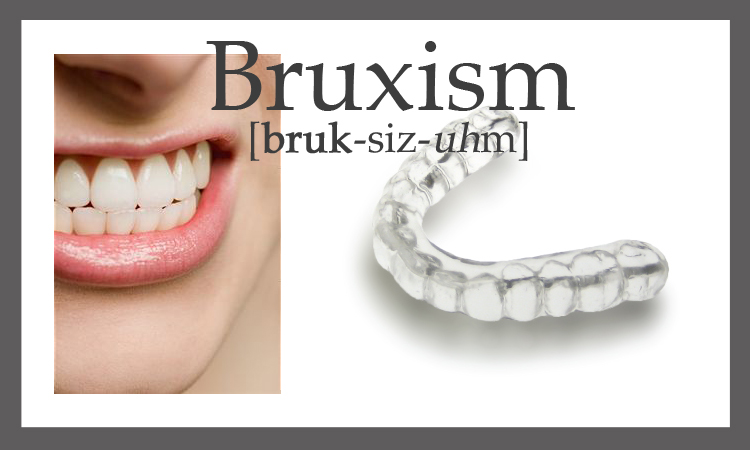
( Bruxism – Image Courtesy of blogs.psychcentral.com )
Do note that as already established, Bruxism is not a reserve of the sleep cycle given that about 20% of the remaining cases manifest in the wake cycle.
The common ground for both the sleep and wake cycle Bruxism manifestations is that it typically occurs subconsciously. Majority of the Bruxism cases (about 80%) occur during one’s sleep in their subconscious state. While awake, you’re more likely to present Bruxism when deeply concentrating such as while studying or when highly focused on something you’re working on, in addition to highly stressful situations, and during great tension and anxiety.
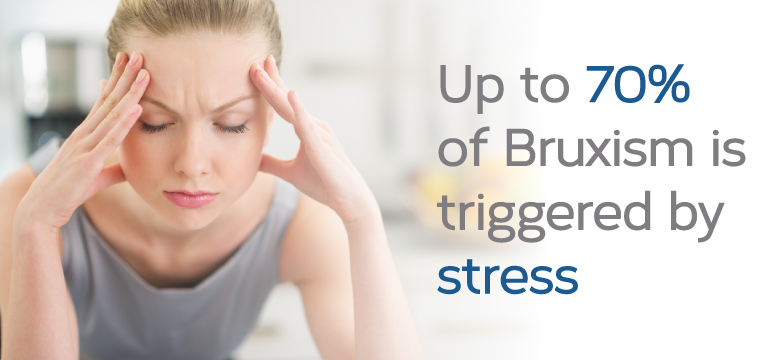
( Bruxism and Stress – Image Courtesy of www.arizonafamilydental.com )
Medically speaking, the condition may either be referred to as:
- primary Bruxism – when it occurs idiopathically and independent of any other condition, or,
- secondary Bruxism – when it occurs as a result of other underlying factors or conditions.
Bruxism has also been attributed to certain medication in many cases where psychoactive prescriptions are involved, particularly:
- antidepressants (especially SSRIs – Selective Serotonin Reuptake Inhibitors),
- antipsychotics
Certain lifestyle habits are also attributed to manifesting Bruxism, and these include:
Substance Abuse:
- Alcohol addiction
- Smoking addiction
Recreational Drug Use:
- Ecstasy
- Cocaine
Prevalence of Sleep Bruxism
Strangely enough, it is thought that just about half the population in a community does indeed grind and clench their teeth from time to time. However, for the more serious cases, only just about 1 in every 20 people is seen to present a dire case of Bruxism. Further, it has been shown that a bigger percentage of children, about 30% actually present considerable cases of teeth grinding and clenching, but the good news is that most of them outgrow this manifestation; and therefore do not live to suffer any negative impacts of Bruxism on their adult teeth.
Strange link between Sleep Bruxism and Obstructive Sleep Apnea (OSA)
There is an odd and unexplained close association between Obstructive Sleep Apnea Syndrome (OSAS) and Bruxism. OSAS, also a sleeping disorder, mainly entails disrupted and anomalous breathing during the sleep phase that usually involves snoring, and could lead to cessation of breathing and even choking.
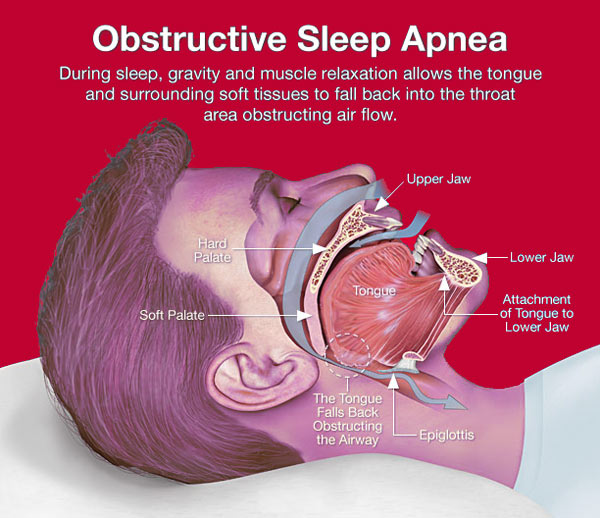
( OSAS and Upper Airways – Image Courtesy of obstructive-sleep-apnea.info )
Complications due to Bruxism
You may be lucky to experience teeth grinding without having to undergo any additional symptomatic complications and associated problems, but many are the cases where further complications arise due to sleep disordered by Bruxism. Some of the associated problems due to Bruxism include:
- Jaw pain
- Neck pain
- Headache
- Teeth wearing out – Enamel wasting (by attrition, erosion and abrasion)
- Ear ache
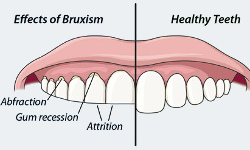
( Bruxism – Image Courtesy of www.nordimplant.com )
It may be difficult to automatically know if you do indeed suffer from Sleep Bruxism, unless if you do in fact have a sleep or bed partner who may notice the sleep behavior in your sleeping patterns. Other manifestations you may look out for include: feeling a somewhat numbing sensation in your jaws, a dull lingering headache in the morning when you wake up, feeling tightness or hurting jaws when you wake up, having difficulty in opening your mouth wide open as you normally would, a lingering and lasting facial pain also within your cheeks, damaged teeth and crowns, or even broken or cracked dental fillings, or even finding some broken enamel in your mouth upon waking up.
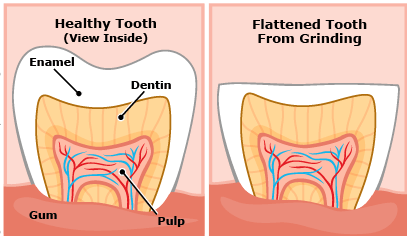
( Bruxism – Image Courtesy of www.mykidsdentist.com.au )
It is also beneficial to see not just a sleep specialist but a dentist too who will assess the condition and health of your teeth, jaws and gums and should be in a better position to point out any symptomatic complications of Bruxism that presents itself in your sleep.
Furthermore, you will also need to have a sleep study undertaken on your sleeping pattern and sleep behavior to assess just how much jaw movement, teeth grinding and clenching actually takes place while you sleep. This will not only be useful in assessing Sleep Bruxism but will also be instrumental in identifying any other anomalous sleep behavior and sleep disorder affecting your normal sleep-wake cycle and sleeping patterns.
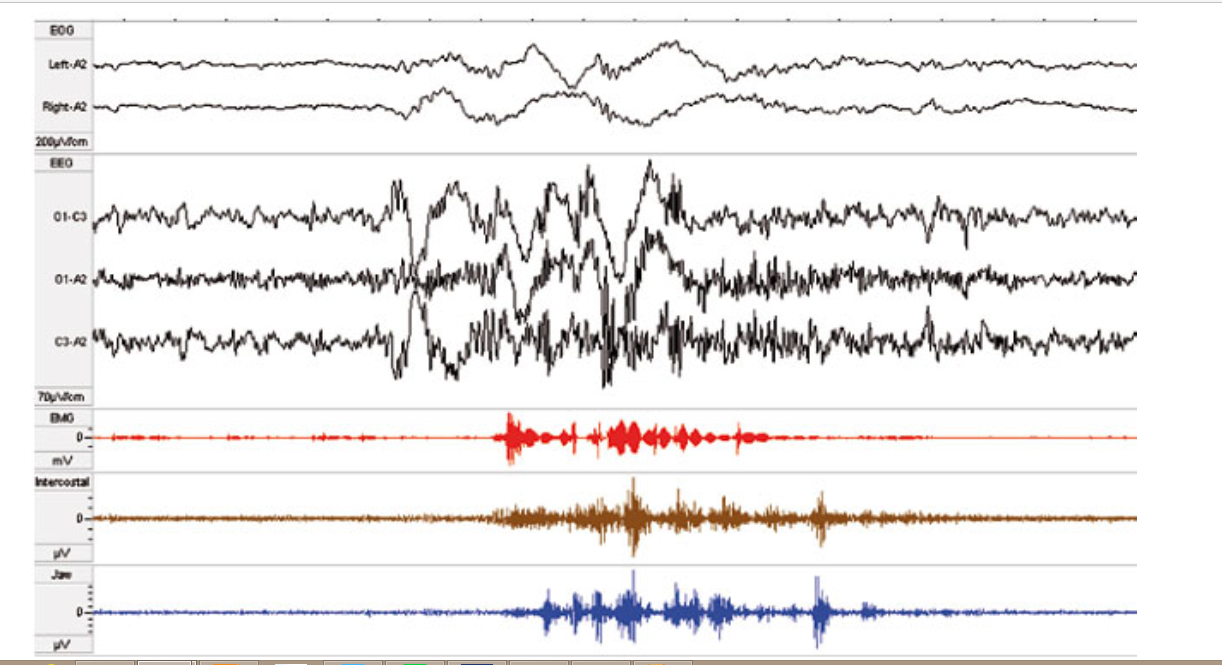
( Sleep Arousal due to Bruxism PSG Test – Image Courtesy of www.pneumon.org )
Treatment of Bruxism
Treating Bruxism as a sleeping disorder mostly involves behavioral therapies which have been shown to be effective in managing the symptoms during sleep phase. Though there a number of possible and usable treatment options for Bruxism, not too many have been proven to be as effective as desired. That said, here are the most effective treatment options for Bruxism:
- Behavioral Therapies
- Use of Mouth Guards
- Use of Mouth Splints
- Muscle Relaxation Exercises
- CBT – Cognitive Behavioral Therapy
- Sleep Hygiene
The main aim of behavioral therapies is to help you identify stress-causing factors in your life, things that are bound to stir you up in anger, tension or anxiety; identify key ways in dealing with them without causing any repercussion effects on your overall well-being. That way in dealing with them appropriately, the workup does not have to manifest as Sleep Bruxism when you lay down to sleep.
The mechanism of Mouth Guards and Mouth Splints (much like those used in Boxing and Ice Hockey) is pretty much the same as it guards and protects the mouth, jaw and teeth from the mechanical damage of teeth grinding and constant clenching which would otherwise lead to wear and tear, and tooth damage. The Bruxism patient will therefore wear the mouth guard or mouth splint in their mouth before going to sleep and have it on all the while they’re asleep.
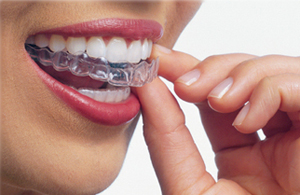
( Bruxism – Image Courtesy of www.newdentalhealth.com )
Muscle relaxation techniques help in relieving the patient of any tension build up in the upper neck region, head and temples, jaw and mouth; and alleviating it so as to prevent the carry-forward during their sleep.
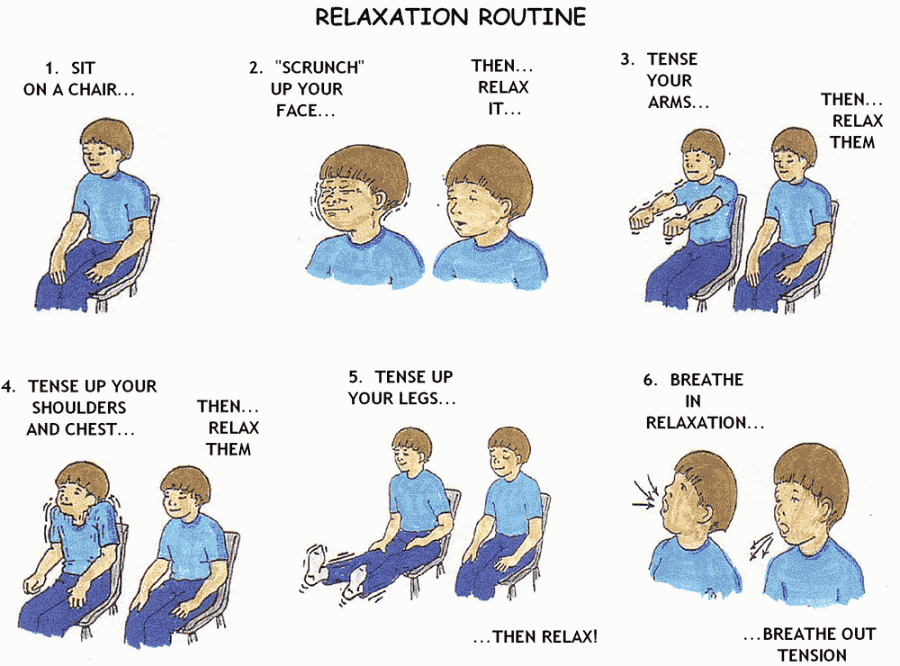
( Muscle Relaxation Techniques for Bruxism – Image Courtesy of asdresources.wordpress.com )
CBT – Cognitive Behavioral Therapy is useful in nipping any tension, stress and anxiety issues the patient may be dealing with in waking life and the benefit should be realized also in their sleep and in curbing any sleep behavioral anomalies.
Sleep Hygiene is basically a set of sleep guidelines aimed at rectifying bad personal habits, lifestyle choices and environmental factors that utlimately disrupt the healthy quality and quantity of sleep, and generally affecting the whole sleep-wake cycle. Some of the key tips include:
- Avoiding the consumption of heavy meals that will bog down your gastrointestinal system before going to sleep
- Avoidance of stimulants before going to sleep: caffeine in coffee, tea, chocolate, and even over-the-counter drugs containing stimulants like caffeine (painkillers or NSAIDs)
- Avoidance of smoking cigarettes and cigars at least 6 hours before going to sleep
- Avoidance of alcoholic drinks at least 6 hours before going to sleep
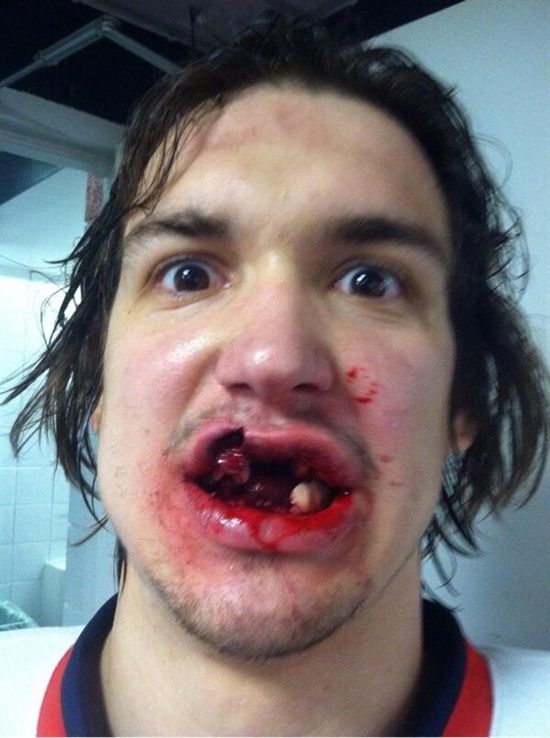
( Do you think he was wearing a Mouth Guard??! – Image Courtesy of www.pinterest.com )

